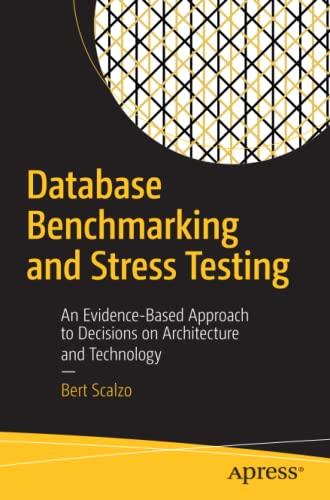Question
Switch to a command-line terminal (tty5) by pressing Ctrl+Alt+F5 and log in to the terminal using the user name of root and the password of
Switch to a command-line terminal (tty5) by pressing Ctrl+Alt+F5 and log in to the terminal using the user name of root and the password of LINUXrocks!. At the command prompt, type cat /etc/services and press Enter to view the /etc/services file. Next, type cat /etc/services | less at the command prompt and press Enter to perform the same task page-by-page. Explain what the | metacharacter does in the previous command. How is this different from the less /etc/services command? At the command prompt, type cat /etc/services | grep NFS and press Enter. How many lines are displayed? Why did you not need to specify a filename with the grep command? At the command prompt, type cat /etc/services | grep NFS | tr F f and press Enter. Explain the output on the terminal screen. At the command prompt, type cat /etc/services | grep NFS | tr F f | sort r and press Enter. Explain the output on the terminal screen. At the command prompt, type cat /etc/services | grep NFS | tr F f | sort r | tee file and press Enter. Explain the output on the terminal screen. Next, type cat file at the command prompt and press Enter. What are the contents? Why? What does the tee command do in the pipe above? At the command prompt, type cat /etc/services | grep NFS | tr F f | sort r | tee file | wc l and press Enter. Explain the output on the terminal screen. Next, type cat file at the command prompt and press Enter. What are the contents and why? At the command prompt, type cat /etc/services | grep NFS | tr F f | sort r | sed /udp/d | sed /tcp/s/mount/MOUNT/g and press Enter. Explain the output on the terminal screen. Can this output be obtained with the grep and tr commands instead of sed? At the command prompt, type cat /etc/hosts. Next, type cat /etc/hosts | awk /localhost/ {print $1, $3} and press Enter. Explain the output on the terminal screen. Type exit and press Enter to log out of your shell. Expert Answerinformation icon An expert answer will be posted here Up next for you in Computer Science Using Ubuntu Linux Solution Image See answer Project 2-7 The lscommand is one of the most useful commands. This command will list the files and directories within the current working directory. The general syntax of the command is ls [options] [file]. You will start by using lsto See answer See more questions for subjects you study Questions viewed by other students Q: On your Fedora Linux virtual machine, switch to a command-line terminal (tty2) by pressing Ctrl+Alt+F2 and log in to the terminal using the user name of root and the password of LNXrocks!. At the command prompt, type cat /etc/shadow and press Enter. Record the encrypted password for bozos user account. At the command prompt, type passwd l bozo and press Enter to lock bozos... A: See answer Q: Please answer using linux. 1. Switch to a command-line terminal (tty2) by pressing Ctrl+Alt+F2 and log in to the ter- minal using the user name of root and the password of LNXrocks!. 2. At the command prompt, type touch permsample and press Enter. Next, type chmod 777 permsample at the command prompt and press Enter. 3. At the command prompt, type ls -l and press Enter. Who has... A: See answer Show more Post a question Answers from our experts for your tough homework questions.
Step by Step Solution
There are 3 Steps involved in it
Step: 1

Get Instant Access to Expert-Tailored Solutions
See step-by-step solutions with expert insights and AI powered tools for academic success
Step: 2

Step: 3

Ace Your Homework with AI
Get the answers you need in no time with our AI-driven, step-by-step assistance
Get Started


